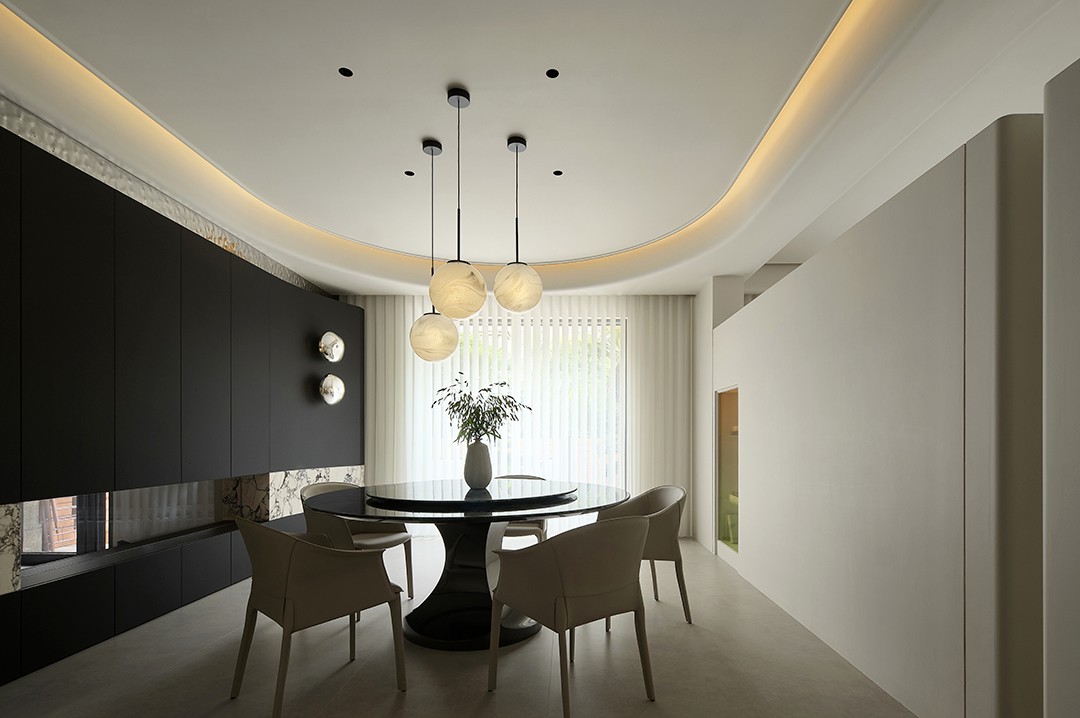Beirut Terraces Herzog - de Meuron
2017-05-24 03:00
Text description provided by the architects. Site
贝鲁特市位于发展中的中东的中心地带。它一直是一个国际都会,作为欧洲和中东之间的文化和地理纽带,它是该区域的一个中心。贝鲁特的历史再丰富不过了;腓尼基人、罗马人、曼路克人、奥斯曼人和殖民地统治的遗迹塑造了这座城市及其建筑。贝鲁特梯田的设计确实受到了这座城市丰富而动荡的历史的层次性的影响。
The city of Beirut lies in the heart of the developing Middle East. Having always been a cosmopolitan city, it is a focal point of the region as a cultural and geographical link between Europe and the Middle East. The history of Beirut could hardly be more diverse; remains of Phoenician, Roman, Mamluk, Ottoman and Colonial rule have shaped the city and its buildings. The design of Beirut Terraces was quite literally influenced by the layers of the city’s rich and tumultuous history.
这是一个历史,现在也标志着不可避免的痕迹,一个多事的礼物。在今后几代人中,贝鲁特人民将铭记2005年总理拉菲克·哈里里遇刺事件,当时一枚汽车炸弹在圣乔治饭店前爆炸。由此造成的破坏仍然可以作为每日的提醒。尽管有着伤痕累累的历史,但有一个恢复该地区的明确愿景,一项旨在重建和振兴贝鲁特这一地区的总体计划正在进行中。贝鲁特梯田的遗址位于一座新游艇码头附近的办公和住宅高层建筑总体规划的一部分。
It is a history now also marked by inescapable traces of an eventful present. For generations to come, the people of Beirut will remember the assassination in 2005 of Prime Minister Rafik Hariri, when a car bomb detonated in front of St. Georges Hotel. The resultant devastation is still visible as a daily reminder. Despite a scarred history, there is a clear vision to rehabilitate the area, with a master plan well under way that aims to rebuild and revitalize this part of Beirut. The site of Beirut Terraces is in a portion of the master plan dedicated to office and residential high-rise buildings, in the vicinity of a new yacht marina.
该建筑的结构和外观被告知了对城市过去的认识和尊重,以及当代贝鲁特的自信和乐观。五个原则定义了项目:层和梯田,内外,植被,视图和隐私,光和身份。其结果是一座垂直分层的建筑:不同大小的楼板允许开放和隐私之间的相互作用,从而促进内外之间的灵活生活。精细的细节和对高质量材料的协调一致的关注产生了一个既高效又豪华的结构。精心的环境工程和具体的植被使用进一步提高了建筑物内的可持续性和生活质量。
The structure and appearance of the proposed building are informed with an awareness and respect for the city’s past, as well as the self-confidence and optimism of contemporary Beirut. Five principles define the project: layers and terraces, inside and outside, vegetation, views and privacy, light and identity. The result is a vertically layered building: slabs of varying sizes allow for interplay between openness and privacy that fosters flexible living between inside and outside. Fine detailing and a focus on the concerted orchestration of quality materials produce a structure that is both efficient and luxurious. Careful environmental engineering and specific use of vegetation further enhance sustainability and the quality of life within the building.
这座建筑是一座多层119米高的高楼.这种分层结构是通过突出或后退形成露台和悬垂、光线和阴影、住所和暴露场所的生活区来区别的。因此,每一单元都是独特的,每一层公寓布局的变化都在深思熟虑地塑造了一个新的街区。
The building is a multilayered 119-metre tall high-rise. The stratified structure is distinguished by projecting or set back living areas that generate terraces and overhangs, light and shadow, places of shelter and exposure. As a result, each unit is unique and variations in the layout of the apartments on each layer thoughtfully shape a new neighbourhood.
广泛的悬垂提供遮荫和减少太阳增益。每一层楼的楼板在其整个圆周上凸出至少60厘米,方便了大面积双层玻璃外墙的建造和维护。地板厚到足以平衡每天的温度周期,因为它们的热质量,储存在夜间,并释放它在白天。这种被动策略使建筑成为一个真正可持续的居住场所。必要时,悬垂处的穿孔可以调节照明和阳光照射。它们的密度、形状和它们所产生的阴影形成了一个引人注目的图案,使塔楼具有独特的特征,并使其远离周围环境。
Extensive overhangs provide shade and reduce solar gain. The slabs of each floor protrude around their entire circumference by a minimum of 60 centimetres, easing construction and maintenance of the extensive double-galzed façades. The floor plates are thick enough to balance the daily temperature cycles by virtue of their thermal mass, storing cold through the night and releasing it during the day. Such passive strategies make the building a truly sustainable place to live in. Where necessary, perforations in the overhangs modulate the lighting and exposure to the sun. Their density, shape, and the shadows they generate form a striking pattern that gives the tower a distinctive identity and sets it off from its surroundings.
为了保证建筑体积的充分区分和保持合理的建筑比例,塔楼采用五层组合式结构,以不同的组合重复。该结构由核心和一个横贯14.7米的规则柱栅支撑。因此,这些公寓的墙壁不是结构的,它们的安排可供今后灵活使用。塔楼的每一个季度都有自己的大堂,电梯一次只能提供两套公寓。为了提高效率,两个大堂共用服务电梯、MEP立管和消防通道。
To guarantee sufficient differentiation of the building volume and maintain reasonable building ratio, the tower is made of five modular floors, repeated in different combinations. The structure is carried by the core and a regular column-grid that spans up to 14.7 metres. As a result the walls of the apartments are not structural and their arrangement is open to future flexibility. Each quarter of the tower has its own lobby with elevators serving no more than two apartments at a time. For greater efficiency, two lobbies share service elevators, MEP risers, and fire escapes.
不同大小和类型的公寓,包括多层复式公寓,分布在整个大楼内,提供各种条件以满足每个租户的需要,并为每个阶层提供独特的身份。公寓一般由三个区域组成:公共接待区、私人居住空间和服务区。接待区的门厅和豪华客厅包括座位和就餐区域,可进入宽敞的观景平台。私人空间包括家庭起居室和卧室、套房、浴室和步入式壁橱,通常还包括通往露台的通道。服务区包括设有储藏室和洗衣房的厨房和带浴室的女佣卧室。所有主要空间,例如起居室和卧室,都提供了3.31米的清晰高度。
The mix of apartments of different sizes and types, including multi-storey duplexes, are distributed throughout the building, offering a variety of conditions to meet each tenant’s needs and provide each level with a unique identity. The apartments generally consist of three areas: a public reception area, a private living space, and a service area. The foyer and grand living room in the reception area include areas for seating and dining with access to a spacious viewing terrace. The private space features a family living room and bedrooms with en-suite bathrooms and walk-in closets and often also includes access to a terrace. The service area comprises a kitchen with storage and laundry room attached and a maid’s bedroom with bathroom. All the main spaces, such as living rooms and bedrooms, provide a clear height of 3.31 metres.
Architects Herzog & de Meuron
Design Consultants Herzog & de Meuron
Executive Architect Khatib & Alami
 举报
举报
别默默的看了,快登录帮我评论一下吧!:)
注册
登录
更多评论
相关文章
-

描边风设计中,最容易犯的8种问题分析
2018年走过了四分之一,LOGO设计趋势也清晰了LOGO设计
-

描边风设计中,最容易犯的8种问题分析
2018年走过了四分之一,LOGO设计趋势也清晰了LOGO设计
-

描边风设计中,最容易犯的8种问题分析
2018年走过了四分之一,LOGO设计趋势也清晰了LOGO设计






















































